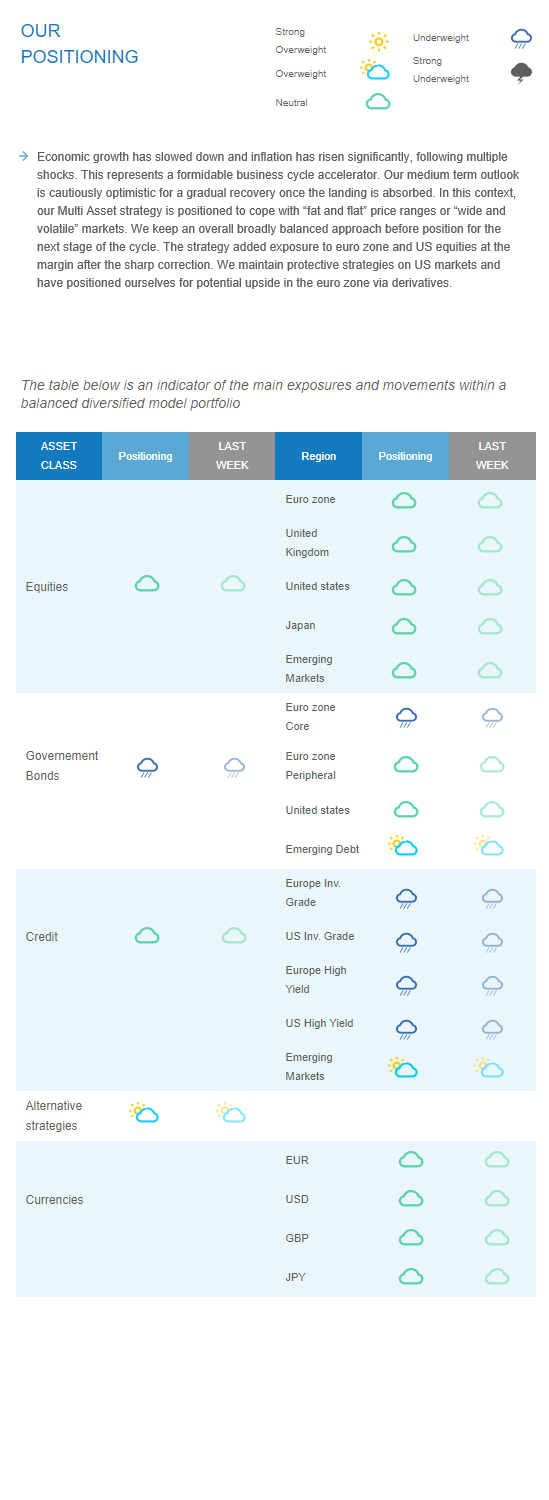Last week in a nutshell
- The labour market continued to be a bright spot for the U.S. economy with the latest addition of 390K non-farm payrolls. In addition, average hourly earnings increased by 5.2%, adding to the evidence that inflation may have peaked in March.
- Speaking about inflation, euro zone CPI estimates for May rose to 8.1%, above forecasts of 7.7%. This number added further pressure on the European Central Bank to communicate and act.
- The Bank of Canada raised its benchmark interest rate by half a percentage point to 1.5%. The central bank’s objective is to reach a neutral range of 2 to 3% but pace must be defined.
- China started to ease its COVID-19-related lockdown measures as the number of new infections has come down.
What’s next?
- Until recently, central banks policies have largely been supportive and predictable. But recent multiple shocks have led to multiple policy responses. This week, central banks meetings will unfold in the euro zone, Australia, Thailand, and India.
- Recent data confirm that inflation has likely peaked in the USA. A series of inflation data, particularly CPI and consumer inflation expectations in the Michigan consumer sentiment survey, will be in focus ahead of the FOMC on June 12.
- China will release services PMI and inflation data alongside trade numbers and aggregate financing data for May. They will be closely analysed as the virus situation showed early signs of improvements midway into the second quarter.
- Finally, flash euro zone Q1 GDP figures as well as final employment change data are lined up for release this week.

